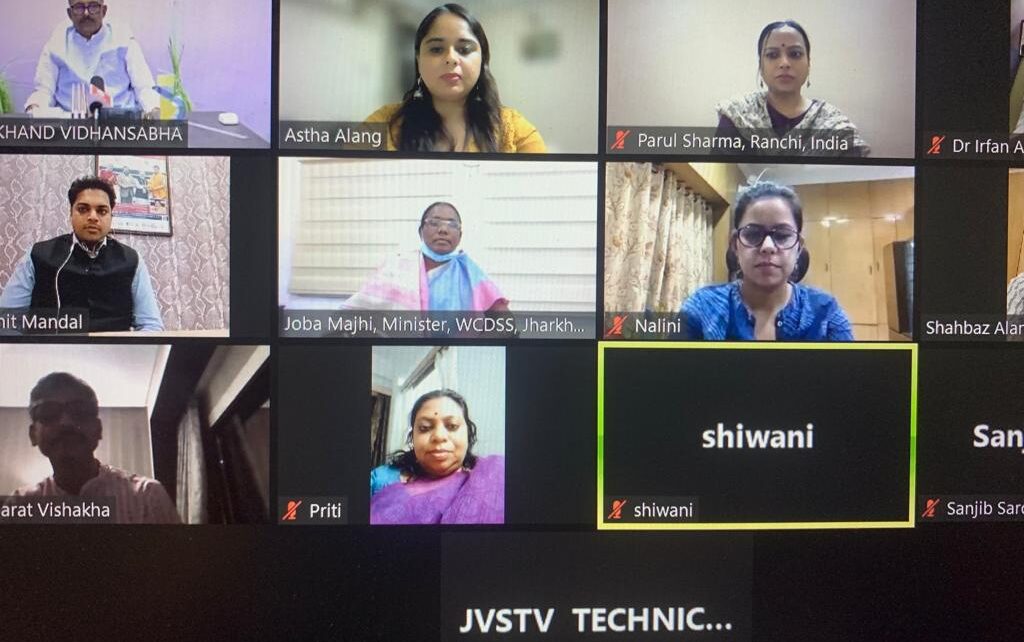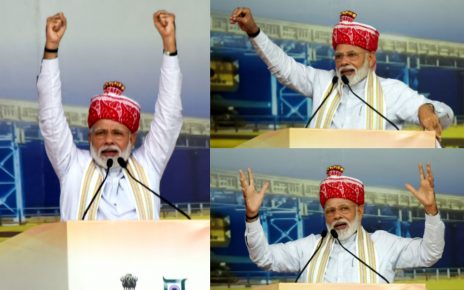Ranchi, Jharkhand | March | 08, 2022 :: UNICEF Jharkhand in collaboration with Policy & Development Advisory Group, organized a virtual workshop today on gender sensitisation and prevention of gender-based violence. Shri Rabindra Nath Mahato, Hon’ble Speaker, Jharkhand Vidhan Sabha and Joba Majhi, Minister of Social Welfare, Women and Child Development, Jharkhand gave the special address.
MLAs such as Amit Mandal, Sanjib Sardar, Irfan Ansari, and Sukhram Oraon participated in the workshop. In his special address Shri Rabindra Nath Mahato, Hon’ble Speaker, Jharkhand Vidhan Sabha said, “Today, women are actively finding new avenues of expressing themselves be it in Art, Sports, Administration, Academia or Politics. They have successfully established themselves in crucial positions in different fields. Measures have been taken internationally and nationally to ensure that all women and girls enjoy their rights, Still, we have a long way to go. Women need to feel safe and secure not just at their workplace but also at home. Nothing and no one should come in the way of their progress. As a society, we need to be more aware of our actions and the consequences that follow them. This workshop is a great step in that direction.”
Hon’ble Speaker further said, “Violence against women is a blot on our culturally rich society. During the Covid-19 induced lockdowns, women were more prone to domestic violence and containing it became harder than ever. There is a lack of awareness and hesitancy on part of the victim to report their ordeal. They fear retaliation and continue to suffer within their four walls. To think that so many women around the world go through this every day is heart-wrenching. We need to involve women in our response strategies for situations like COVID or floods or any other such events.”
Joba Manjhi, Minister of Social Welfare and Women & Child Development, Government of Jharkhand said, “Violence can be both visible and invisible. While violence is inflicted on both men and women alike, we need to understand who is at the weakest and most vulnerable position in our societies and at home. As we all know, women and especially young girls are extremely susceptible to violence. Child marriages, Domestic Violence, Female Foeticide, Dowry related abuses are all forms of gender-based violence.”
Introducing the workshop, Astha Alang, Communication, Advocacy & Partnership Officer, UNICEF Jharkhand, said, “Fighting gender-based violence is an important aspect of attaining gender equality as mentioned in the Sustainable Development Goal 5. Gender inequality results in unequal opportunities, and while it impacts on the lives of both genders, statistically it is girls that are the most disadvantaged. Girls and boys see gender inequality in their homes and communities –in movies, in their day to day lives and among the men and women who provide their care and support. This shapes their minds and behaviours. It is important to address these norms and value the girl child in order to bring equality.”
Parul Sharma, Officer-in-Charge, UNICEF Jharkhand said, “While gender-based violence is a phenomenon enrooted in male dominance, some simple steps may be the beginning points towards its eradication: create a legal and policy environment which does not trivialize domestic violence at home, abuse on streets or gender based harassment at workplace, create equal playing field for women and girls by guaranteeing wage equity and right to property; and equip men and boys with skills to accept and collaborate with women as equal partners. These three steps will help even out ‘unequal power relations’ between men and women, which result in latent or manifest violence.”
Amit Kumar Mandal, MLA from Godda, said, “Not just Jharkhand but the entire country needs to work for women empowerment. We can take inspiration from good models in our country and try to replicate that in our state.”
Dr. Irfan Ansari, MLA from Jamtara, said, “Women need both social and economic support to get empowered. Massive awareness campaigns have to be conducted in order to contain incidents of gender-based violence.”




